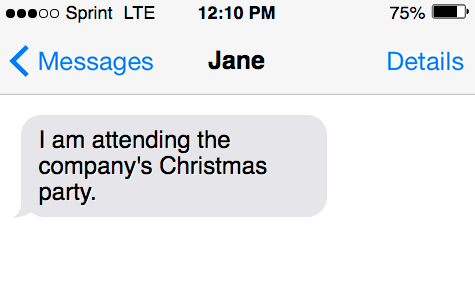Is it companies or company’s? Or companies’? Using the apostrophe in the English language typically provides pluralization to the word that it is modifying. Adding an apostrophe can suggest that there is possession. And many amounts of certain things. For example, “Sonia’s book is missing.” In this sentence, the possession of the book is to Sonia, the person. This is how an apostrophe can modify singular nouns. An apostrophe can also modify compound nouns and create joint or separate possession.
Learn which word form is correct in this short guide…
Why is there confusion between Company’s and Companies?
The word “companies” and “company’s” sound identical. Although one form, given the use in a sentence, is grammatically correct, while the other form is incorrect. The word “companies” is the correct plural form of the word company. And the word “company’s” is the correct possessive form of the word “company.”
How to use the apostrophe correctly
The possessive singular noun is made by adding an apostrophe and the letter “s” to the singular noun in question, regardless of whether the singular noun ends in an “s” letter.
When a plural noun has an “s” at the end, the possessive form of the noun is created by simply adding an apostrophe. When the noun ends in any other letter, the possessive form is made by adding both an apostrophe and an “s.”
| Form | Example |
| Singular noun | Sarah’s |
| Plural noun | Women’s |
| 2 or more people | Kim and Adam’s |
| Singular noun ending in “s” | James’s and James’ |
| Plural noun ending in “s” | Parent’s |
| 2+ people | Kim’s and Adam’s |
| Apostrophe for Possessives | Apostrophe for Contractions |
| Amy’s swim class | they + have = they’ve |
| Karen’s car | are + not = aren’t |
| Robert’s vehicle | they + will = they’ll |
“Company” definition
Let’s take a look at the definition of “company.”
| Word | Definition |
| Company (noun) /ˈkəmp(ə)nē/ | a commercial business. |
Which is correct? Companies or Company’s?
Here is a simple breakdown of which word form is correct. For examples of each word form in an English sentence, scroll down to the next section.
| Word | Correct or incorrect |
| Companies | Correct when used to refer to many “company.” |
| Company’s | Correct when referring to the possessive form of the word “company.” |
Key differences
The key difference between the two word forms is how they are used in a sentence. For example, if we are referring to the company holiday, we might say, “I want to go to the company’s holiday party.” In this sentence, the possession of the holiday party is to the company.
“Companies” sentence examples
Below are sentence examples using the word form correctly:
- There are many companies that exist in Southeast Asia.
- We are raising money for the companies efforts.
“Company’s” sentence examples
Below are sentence examples using the word form correctly:
- I am attending the company’s Christmas party.
- The company’s office is undergoing maintance at the moment and we can’t enter the building.

“Companies'” sentence examples
Below are sentence examples using the word form correctly:
- Each of the portfolio objects contain the companies’ companies. Each owning multiple LLC’s in the entities.
How to remember which word form to use
It’s important to remember rules for pluralization and possession. The word company is a singular noun, it refers to a thing. And when we want to make it a plural noun, we turn it into “companies” And then as a possessive noun the word companies “company’s.”
Here is a simple trick to remember apostrophe rules:
Use apostrophe + “s” with nouns that don’t end in “s”. When a singular noun has possession over another noun (such as Sarah’s hat or mom’s cat), add an apostrophe + “s” to the end of the noun. The same rules apply for collective nouns and plural nouns that don’t end in the “s” letter.
Common questions
Questions and answers about the English language.
What is the plural for “company?”
The plural form is “companies.”
Inside this article
Fact checked:
Content is rigorously reviewed by a team of qualified and experienced fact checkers. Fact checkers review articles for factual accuracy, relevance, and timeliness. Learn more.
Core lessons
Glossary
- Abstract Noun
- Accusative Case
- Anecdote
- Antonym
- Active Sentence
- Adverb
- Adjective
- Allegory
- Alliteration
- Adjective Clause
- Adjective Phrase
- Ampersand
- Anastrophe
- Adverbial Clause
- Appositive Phrase
- Clause
- Compound Adjective
- Complex Sentence
- Compound Words
- Compound Predicate
- Common Noun
- Comparative Adjective
- Comparative and Superlative
- Compound Noun
- Compound Subject
- Compound Sentence
- Copular Verb
- Collective Noun
- Colloquialism
- Conciseness
- Consonance
- Conditional
- Concrete Noun
- Conjunction
- Conjugation
- Conditional Sentence
- Comma Splice
- Correlative Conjunction
- Coordinating Conjunction
- Coordinate Adjective
- Cumulative Adjective
- Dative Case
- Determiner
- Declarative Sentence
- Declarative Statement
- Direct Object Pronoun
- Direct Object
- Diction
- Diphthong
- Dangling Modifier
- Demonstrative Pronoun
- Demonstrative Adjective
- Direct Characterization
- Definite Article
- Doublespeak
- False Dilemma Fallacy
- Future Perfect Progressive
- Future Simple
- Future Perfect Continuous
- Future Perfect
- First Conditional
- Irregular Adjective
- Irregular Verb
- Imperative Sentence
- Indefinite Article
- Intransitive Verb
- Introductory Phrase
- Indefinite Pronoun
- Indirect Characterization
- Interrogative Sentence
- Intensive Pronoun
- Inanimate Object
- Indefinite Tense
- Infinitive Phrase
- Interjection
- Intensifier
- Infinitive
- Indicative Mood
- Participle
- Parallelism
- Prepositional Phrase
- Past Simple Tense
- Past Continuous Tense
- Past Perfect Tense
- Past Progressive Tense
- Present Simple Tense
- Present Perfect Tense
- Personal Pronoun
- Personification
- Persuasive Writing
- Parallel Structure
- Phrasal Verb
- Predicate Adjective
- Predicate Nominative
- Phonetic Language
- Plural Noun
- Punctuation
- Punctuation Marks
- Preposition
- Preposition of Place
- Parts of Speech
- Possessive Adjective
- Possessive Determiner
- Possessive Case
- Possessive Noun
- Proper Adjective
- Proper Noun
- Present Participle
- Prefix
- Predicate



